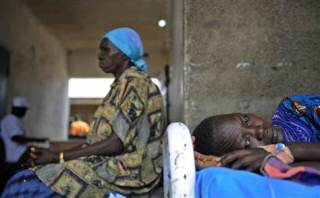South Sudan’s fight against malaria
By Tesfa-Alem Tekle
April 25, 2012 (JUBA) – The Government of South Sudan (GoSS) has vowed to work towards eradicating malaria from the nation with preventive and health education mechanisms.

Malaria is one of the major killers in South Sudan, seriously affecting the socio-economic status of communities.
According to the World Health Organization (WHO), malaria is the leading killer in Africa, affecting Sub-Saharan Africa women and children most.
The Ministry of Health, along with international partners, has been exerting continued preventative measures to curb the disease. However it has acknowledged that more commitment is needed.
South Sudan is facing limited health facilities, a weak health information system and limited resources, despite the support afforded by international partners such as the WHO, the United Nations Children’s Fund (UNICEF) and the US Agency for International Development (USAID), in the fight against malaria.
Hussein said the policy strategy of a new malaria intervention programme includes better curative treatments which will be implemented as part of new initiatives to control the prevalence of the disease in the country.
He called on international donors, partners and all bodies in decision-making positions to invest more in making South Sudan malaria-free.
Deputy health minister, Yatta Lugur, told Sudan Tribune that the vision of eradicating malaria from the country is “attainable” but did not give figures. He also expressed concern that many people in South Sudan underestimate the danger of the disease.
GoSS has been distributing sleeping nets to people across the country and says it has so far managed to out reach 25 percent of the population.
However this has not been entirely successful according to Lugur, as recipients in some communities use the nets for fishing, rather than the prevention of mosquito bites; which transmit the diseases.
(ST)
